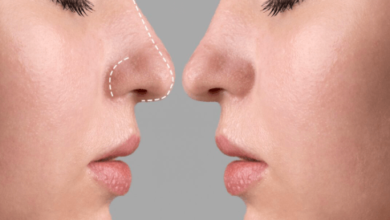New Breakthroughs in Alzheimer’s Treatment: What the Research Says

Alzheimer’s disease remains one of the most pressing challenges in global health. Affecting millions worldwide, it not only burdens patients but also families and healthcare systems.
Keterangan yang dikutip dari pafikuikab.org in recent years, new breakthroughs in treatment have provided hope. In 2025, researchers are uncovering therapies that could change the way Alzheimer’s is managed, slowing progression and improving quality of life.
Understanding Alzheimer’s Disease
Alzheimer’s is a neurodegenerative condition characterized by progressive memory loss, cognitive decline, and behavioral changes. It is caused by the buildup of abnormal proteins in the brain, particularly amyloid plaques and tau tangles, which interfere with communication between brain cells and eventually cause cell death.
Breakthrough Therapies in 2025
1. Disease-Modifying Drugs
Recent advancements include drugs designed to target amyloid plaques. Clinical trials show that these treatments may slow cognitive decline in early-stage patients, offering more time for independence and improved daily functioning.
2. Tau Protein Inhibitors
Beyond amyloid, scientists are developing therapies to stop the accumulation of tau proteins. These treatments aim to protect neurons from damage and preserve cognitive abilities longer.
3. Immunotherapy Approaches
Monoclonal antibodies are being tested to stimulate the immune system, helping the body clear harmful proteins from the brain. Early results are promising, though researchers continue to study safety and long-term benefits.
4. Non-Drug Interventions
In addition to pharmaceuticals, new digital therapies are being introduced. Cognitive training apps, virtual reality environments, and AI-driven monitoring systems are being used to support memory, track disease progression, and enhance patient engagement.
See also: Build a Healthy Hair Routine with the Right Premium Baby Shampoo.
Lifestyle and Preventive Research
Studies continue to highlight the role of lifestyle in preventing or delaying Alzheimer’s. Regular exercise, a balanced diet rich in omega-3 fatty acids, good sleep, and active social interaction are all linked to better brain health. Combining these lifestyle habits with early treatment could have a stronger impact on disease outcomes.
Challenges in Treatment
Despite progress, challenges remain:
- High Costs. Many of the new therapies are expensive and not yet widely accessible.
- Side Effects. Some drugs raise concerns about safety, requiring careful monitoring.
- Diagnosis Delays. Alzheimer’s is often detected too late, when damage to the brain is already extensive.
Future Outlook
The breakthroughs of 2025 signal hope that Alzheimer’s can eventually be managed more effectively. While there is no cure yet, treatments are moving closer to modifying the disease rather than just treating symptoms. With continued investment in research, wider access to therapies, and better early detection tools, the future looks more optimistic for patients and families.
Alzheimer’s remains a formidable challenge, but progress in treatments shows that science is advancing in the right direction. New therapies targeting amyloid, tau, and even leveraging digital technology bring us closer to changing the course of this disease. The global focus now is on ensuring these innovations reach those who need them most, offering hope for millions worldwide.







